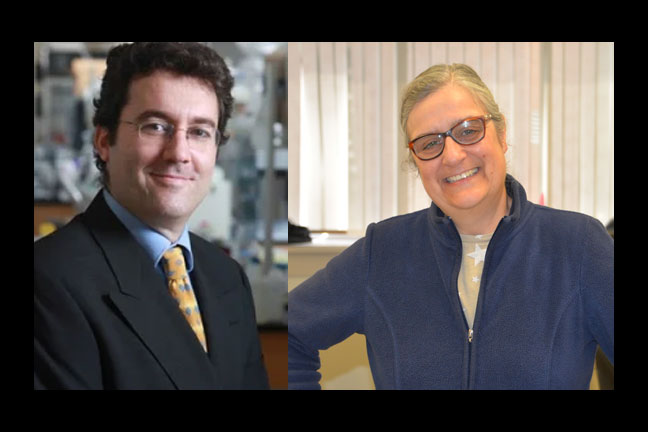May 23, 2023
This latest project propels forward a longtime collaboration between Rensselaer Polytechnic Institute and Albany Medical College
Researchers from Rensselaer Polytechnic Institute (RPI) and Albany Medical College were awarded a $3.3 million grant over five years by the National Cancer Institute to use artificial intelligence (AI) to improve targeted drug therapy in HER2-positive breast cancer treatment. HER2-positive breast cancer tends to grow and spread quickly, but targeted treatments improve outcomes.
The research is being led by Xavier Intes, Rensselaer professor of biomedical engineering and co-director of the Center for Modeling, Simulation and Imaging in Medicine, and Margarida Barroso, a professor of molecular and cellular physiology and director of the Imaging Core Facility at Albany Medical College. RPI and Albany Medical College have collaborated continuously for over a decade focusing on treatments to improve human health supported by six major grants. This grant propels that collaboration forward using modern AI tools.
Targeted drugs are an important part of many cancer therapies to improve specificity and reduce negative side effects. However, resistance to targeted therapy often occurs, preventing long-term, disease-free survival in many patients.
This grant will fund research in HER2-positive breast cancer where it has been proposed that intratumor heterogeneity (ITH), in which cells within the same tumor have different profiles, and microenvironmental factors play a key role in treatment failure. Hence, a better understanding of the underlying mechanisms of HER2 therapy resistance and their relationship with ITH, as well as with the host and tumor microenvironments, is essential for the development of new strategies to improve patient outcomes.
Preclinical longitudinal, non-invasive imaging approaches that can dissect and quantify heterogeneities at the level of multiple tumor features such as drug-HER2 engagement, glucose metabolic levels, and vasculature are lacking. Currently, these parameters can only be assessed through ex-vivo invasive means, using tissue removed from and then returned to the patient.
“Through our research, we will develop a novel mesoscopic, multimodal preclinical imaging approach to test the hypothesis that the distribution of antibody-based therapeutics across tumors mediates not only drug efficacy but also the advent of tumor resistance,” said Intes.
The team will use mesoscopic fluorescence molecular tomography (MFMT) to dissect tumor heterogeneities at near cellular scale resolution in live, intact animals.
Barroso will also collaborate with Sandra Shin, MD, chair of the Department of Pathology and Laboratory Medicine at Albany Medical Center, to correlate histopathology with these novel optical imaging approaches.
“Ultimately, we hope this imaging technology will allow biologists and clinicians to see exactly how a drug binds to a tumor, providing a better understanding of how tumors adapt or change during treatment,” said Barroso. “This could help determine a particular drug’s efficacy on a specific tumor, a key element of tackling drug resistance.”
“For more than a decade, NCI has been recognizing the importance of this cross-institutional collaboration and the unique skills and expertise each researcher brings to the collaboration,” added Alan S. Boulos, MD, ’94, The Lynne and Mark Groban, MD ’67 Dean of Albany Medical College. “The studies supported by this new grant will have a significant impact on the future of cancer diagnostics and therapy.”
“Breast cancer is such a prevalent disease that we all know someone affected by it,” said Shekhar Garde, dean of Rensselaer’s School of Engineering. “I am pleased that Drs. Intes and Barroso are combining the power of engineering and medicine with modern artificial intelligence tools to advance our understanding of this particularly virulent form and improve patients’ quality of life.”

